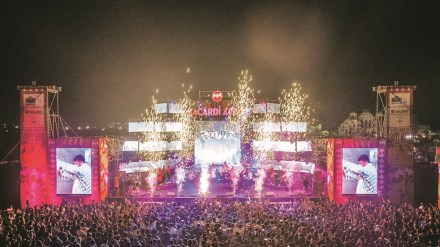During the recent Durga Puja festivities this year, Asian Paints marked the 37th year of its renowned Sharad Shamman award, which recognises the best pandal in Kolkata. The brand’s efforts during Bengal’s most celebrated festival has won it many hearts across the state, not to mention significant brand salience among consumers. Much like Asian Paints, several other brands have built properties that have helped them gain higher brand recall and consumer love. Some prominent examples are Bacardi’s NH7 Weekender, Lakme Fashion Week and Coke Studio.
But what does the creation of such branded properties entail, and how can brands ensure they pay off?
A branded property is about creating a brand’s own place in culture rather than trying to ‘create’ culture as a brand. Siddhant Mazumdar, head of Mediabrands Content Studio in India, notes that such properties are seldom about products and almost always about how a brand complements or contributes to the audience’s world. “A branded property is one of the best ways to build a long-term relationship with consumers around a key interest area. When done well, it can be a powerful platform offering high quality engagement for customers and can even turn them into strong advocates for the brand,” he explains. Brands should look to create events around interests like music, food, fashion, sports, arts and culture.
When creating intellectual properties (IPs), marketers must keep the brand’s core proposition in mind. “If a brand invests in a property that does not reflect its ethos, consumers will not show interest. It is also important to ensure that the property is an original and not a copy of what the competition is doing – copycat properties will reflect poorly on the brand as a follower rather than a leader,” remarks Khushbu Kaushal, vice-president, Arc Worldwide (Publicis Groupe). These IPs are also an avenue to reach consumers beyond the regular channels of advertising. “For example, dark market brands (like alcohol and tobacco companies) use IPs to remain in the eyes of the shopper because they cannot advertise, thus creating brand extensions that can be monetised,” notes Kaushal.
Case in point: Bacardí NH7 Weekender, which is a multi-genre music and comedy festival, running for 13 years now. Today, aside from its tentpole event in Pune, the event has also grown to reach cities like Kolkata and Hyderabad. “What started off as a space for indie musicians to connect with their fans, has today evolved into a platform where independent music meets mainstream culture. Developing and adapting platforms to meet the consumers’ needs has helped us strengthen consumer connections,” states Sameeksha Uniyal, brand lead, Bacardi, Bacardí India & South East Asia, noting that the event also went digital during the pandemic in 2020, and continued to engage with consumers even during tough times.
If done right, branded properties have the potential to lend the brand great stature and drive invaluable publicity. However, the property is also a long-term commitment, which means the brand owner needs to be prepared to deploy significant company resources to make it successful, points out Samit Sinha, managing partner Alchemist Brand Consulting. “A salient case in point of a branded property that ticks off all the check boxes is Red Bull Racing, its Formula 1 racing team. Its association with high-performance sports and particularly, extreme sports, makes the brand come alive in the minds of its target consumers,” he says. In India too, the creation of IPs is an important part of Red Bull’s marketing strategy. For instance, Red Bull Campus Cricket, an event in existence since over 10 years, engages budding cricketers at the college level and gives them an opportunity to make it to the Indian Premier League. The property has also enlisted participation from several cricket stars like KL Rahul and Arshdeep Singh.
Also Read: YuppTV bags broadcasting rights for the ICC Men’s T20 World Cup 2022
